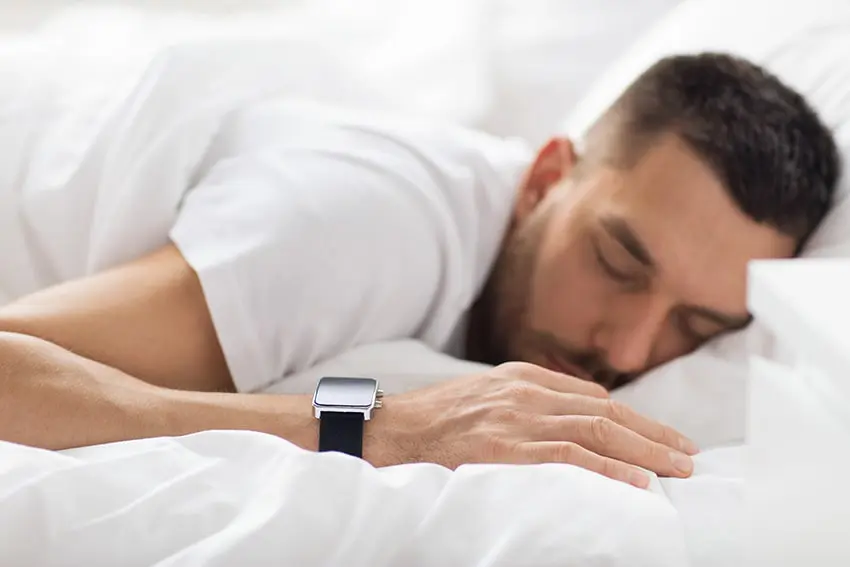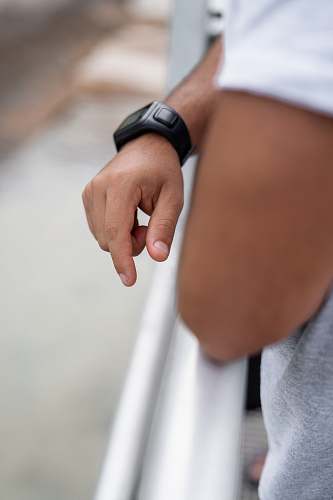Smartwatches, watchbands, and fitness trackers are making the aplomb of noise in the current tech-fueled modern world. With these gadgets not only prepped for tracking our fitness, staying connected to our digital life, or simply telling the time, a smartwatch is much more than a fashion statement to an uber-cool Hifi electronic companion in our Swifting lives.
We care and wear them everywhere to suit our various needs, such as simply making and receiving calls to play music, tracking our health and fitness, and swiping up to see our social media notifications. Most of us even take them for our naps.
But have we anytime wondered about being conscious upon wearing a smartwatch throughout our sleep is genuinely healthy and safe? Does it have any side effects or not? Do we get affected by its radiation? These worrying questions significantly start to haunt us but Don’t worry. We got your back! We would fill you some knowledge regarding the same.
What Happens If We Sleep Wearing A Smart Watch ?
Firstly there is no scientific study or any validity that claims that smartwatches negatively affect our health while being worn, be it sleeping or any other activity for that matter. Still, smartwatches attract and emit radiation by electromagnetic frequency (EMF) that can be easily absorbed by our Human body, especially during our sleep.
This can be drastically avoided by turning off your Bluetooth, Wifi, and advisably all sorts of notifications, which would reduce the radiation to a great extent, or by choosing to buy EMF Harmonizer Watchband to avoid EMF radiation. Source: scienceabc.com
Next, we must also acknowledge that wearing a smartwatch to bed is ultimately a personal choice. In contrast, some may find it comforting, uncomfortable, or unsuitable for their sleep schedule. However, there are many people who are desperate to keep track of their smartwatches and use them to monitor their sleeping habits. While some people may feel uncomfortable wearing a smartwatch while sleeping, others will find it helpful in tracking their sleep patterns and improving their sleep. Apart from the fact of comfortability and discomfort, some people may experience skin irritation and discomfort when wearing a tight watch while sleeping.

Things To Be Mindful About Sleep Tracking
Lastly, an important thing to be known is the mindful and proper usage of the sleep tracking feature, especially by the users who frequently prefer it. The best practice to use sleep tracking is generally 2-3 times a week rather than sporting it all times a week. Similarly, habitual sleep tracking shall be avoided unless the user is not suffering from any sleep distress or a severe medical condition such as Insomnia, Obstructive sleep apnea, etc.
Henceforth sleeping with your smartwatches on isn’t a problem or a worry. Before concluding, we would list out some easy, actionable suggestions that would help you sleep peacefully with your gadget on; here we go:
Consider Using An EMF Blocking Watch Strap.
Choosing to wear EMF harmonized watches to bed should reduce the risks in terms of Electromagnetic Frequency (EMF) exposure because the levels are minimized, and the radiation is predominantly non-ionizing, making it highly unlikely to be exposed to radiation.
Wearing A Super Comfortable Smartwatch Strap And Being Skin Cautious.
It is essential to wear an all-comfy watch band around your wrist when it’s mainly to sleep. One can avail of watch straps made of varied materials such as a metallic strap, synthetic strap, leather watch strap, vegan watch strap, rubber watch strap, Nylon Watch Strap, etc. The most preferred strap material while sleeping is straps made of rubber since it is very adaptable for sleeping, as it fits securely and quickly expands with the movement of your wrist and doesn’t generally absorb sweat. In a simpler sense, to avoid skin problems or irritation, users can use different watch straps during their working hours and use another watch strap at night or clean it with ethyl alcohol.
By Turning On the Do Not Disturb Mode
Since most smartwatch brands choose to use the Do Not Disturb Mode, it is super helpful in diverting all the useless and less significant notifications that often vibrate to hamper your sleep.
To Maintain A Proper And A Suitable Schedule And Gap In Tracking
Sleep tracking does mean checking your sleep every single night. But it says to monitor your reaction to a particular diet and routine a few time intervals a week. If you observe the sleep stats frequently, there will be no significant improvement in sleep quality if a proper tracking schedule is not incorporated.
By Simply Taking Off The Watch
This might sound simple and crazy, but sometimes it’s best to avoid contact with the watch surface by taking your gadget out of your hands to attain regular muscle activity and undisturbed natural blood flow throughout the nerves and tissues.

Conclusion
To sleep is to seek your best and ever-present solace! So don’t compromise it for anything, and anyone is what we would vouch for, yet sleeping with your smartwatches On is entirely doable unless your sleep isn’t appeased for any less. So Happy Napping, fellas!
FAQ’s
1. How Tight Should A Watch Be?
If you wear your Smartwatch to bed, you should ensure that your Smartwatch should not be very tight. Normally, I like to have the space of 1 finger between my wrist and the strap, which is the right fit for a Smartwatch.
2. Which Smartwatch Band or strap Is Ideal For Wearing At Night?
I personally prefer to use the Nylon band for my Smartwatch because it’s comfortable and breathable material. I would not be recommending to use a silicon or metal strap to bed because these two materials are not ideal, and metal strap can potentially hurt you. So, if you want to wear your Smartwatch to bed, make sure that you have nylon or any soft material strap.
3. Do they cause wrist burn marks?
There is no evidence that fitness trackers cause wrist burn marks. If you experience any type of skin irritation after using a fitness tracker, you should consult with your doctor.
